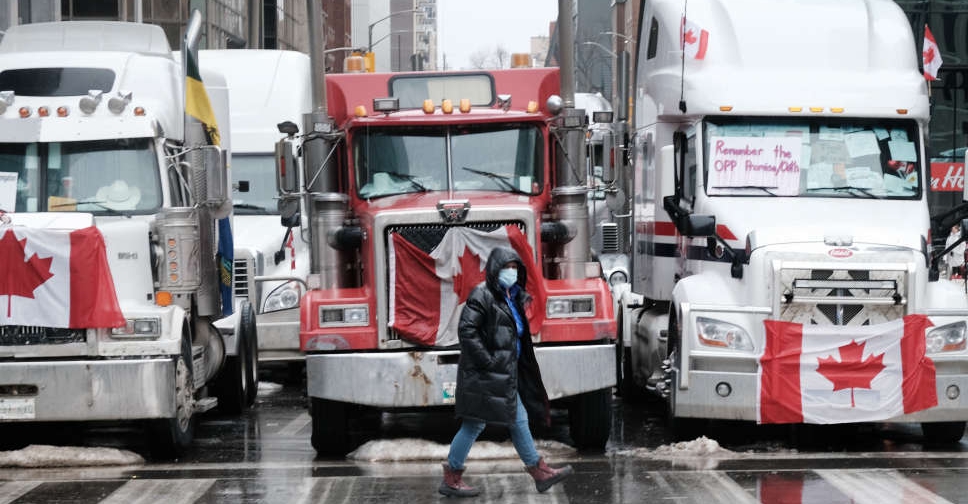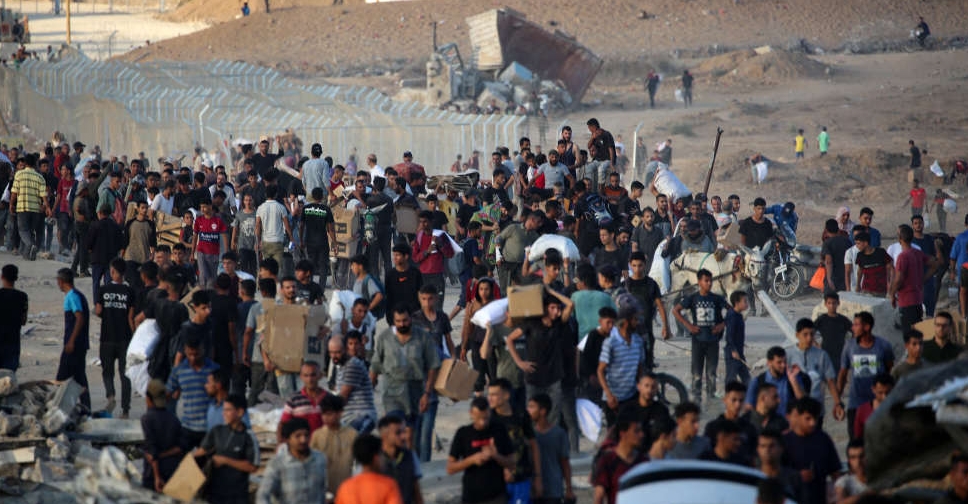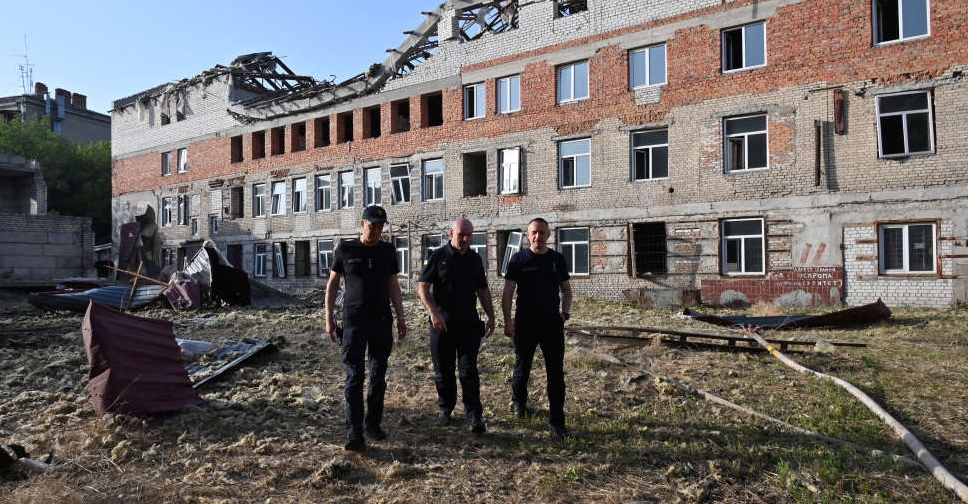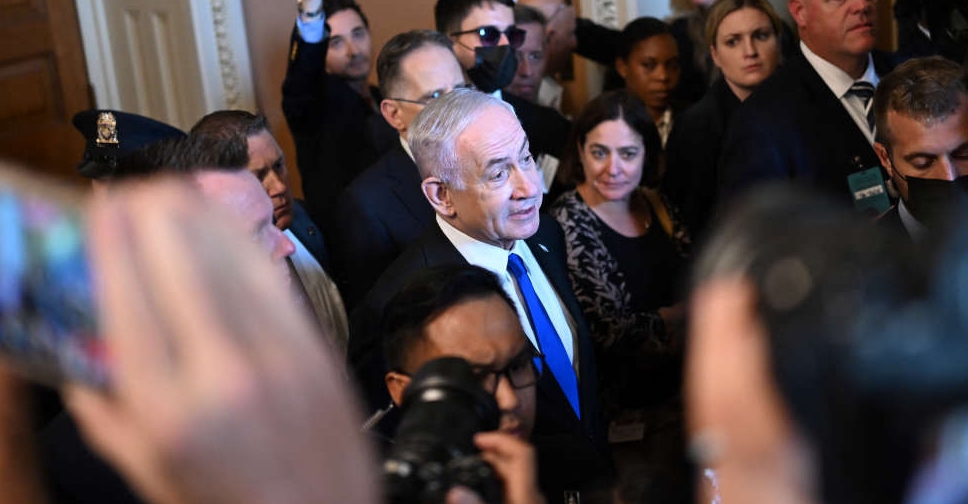
Canada should use federal powers to ease the growing economic disruption caused by the blockage of a vital US-Canada trade route by protesters opposed to coronavirus mandates, US President Joe Biden's administration said.
The closure of the Ambassador Bridge, North America's busiest international land border crossing and a vital supply route for Detroit's carmakers, has halted some auto output and left officials scrambling to limit economic damage.
Canadian truckers started their protests as a "Freedom Convoy" occupying Ottawa, the capital, to demonstrate opposition to a vaccinate-or-quarantine mandate for cross-border drivers mirrored by the U.S. government.
They began blocking the Ambassador Bridge on Monday and have since shut two smaller border crossings in Alberta and Manitoba provinces.
As many pandemic-weary Western countries near the two-year mark on coronavirus restrictions, copycat protests have spread to Australia, New Zealand and France, although the wave of infections caused by the highly infectious Omicron variant has begun to subside in some places.
US Homeland Security Secretary Alejandro Mayorkas and Transportation Secretary Pete Buttigieg on Thursday urged their Canadian counterparts "to use federal powers to resolve this situation at our joint border," a White House official said.
"US and Canadian border and customs authorities are working with great urgency to ensure the continued flow of goods and services across our international border, leveraging alternative land routes, as well as air and sea options."
Canadian federal ministers have called the blockade illegal and asked protesters to return home.
In a tweet on Thursday, Canadian Prime Minister Justin Trudeau said he had spoken to Drew Dilkens, the mayor of Windsor, Ontario, which borders Detroit, and said the federal government was ready to help Windsor and the province get the situation under control.
"It is causing real harm to workers and economies on both sides of the border," he said.
Police near the Ambassador Bridge have begun receiving additional manpower, Dilkens told CNN earlier.
"(If) the protesters don't leave, there will have to be a path forward. If that means physically removing them, that means physically removing them, and we're prepared to do that," he said.
Dilkens later said Windsor was seeking a court injunction to have the protesters removed, adding he was striving to resolve the issue peacefully.
"(While) it may be gratifying for someone to see the forced removal of the demonstrators, such action may inflame the situation and certainly cause more folks to come here and add to the protest, and we don't want to risk additional conflict," he said.



 PKK fighters burn weapons in Iraq to start disarmament
PKK fighters burn weapons in Iraq to start disarmament
 UN reports 798 deaths near Gaza aid hubs in six weeks
UN reports 798 deaths near Gaza aid hubs in six weeks
 Russian attack on Kharkiv damages maternity hospital, sending patients fleeing
Russian attack on Kharkiv damages maternity hospital, sending patients fleeing
 Hostage deal nears amid ceasefire talks between Israel, Hamas
Hostage deal nears amid ceasefire talks between Israel, Hamas



